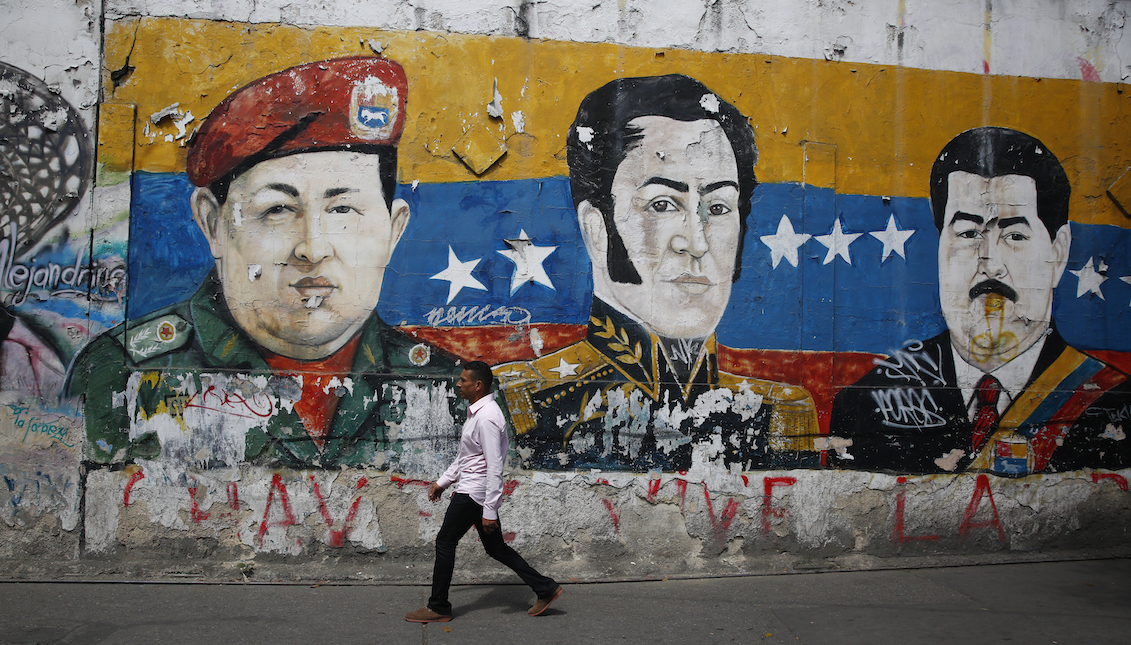
The historic failure of the opposition in Venezuela
Last week, US Secretary of State Mike Pompeo said that securing the opposition in Venezuela against the Nicolás Maduro regime has proven "more than difficult,”…
One of the keys to the success of Hugo Chávez Frías in Venezuela was the ineptitude of his opponents to effectively offer the people an alternative method of governing - a way out of the tyranny.
Historically, and like most of Latin America, Venezuela is a country of caudillos - strong armed bosses that rise to power in nations that can’t exist without a messiah leading the way.
From José Antonio Páez, through Marcos Pérez Jiménez, to Hugo Chávez, the Venezuelan collective unconscious is always more inclined towards a "firm hand" and populism than common sense.
The Decree of Public Instruction of Antonio Guzmán Blanco, the Constitution of López Contreras or the "fifty-fifty" of Isaías Medina Angarita seem to have served no purpose since what really drives Venezuelan politics has been character instead of substance.
After the Chávez’s death, the economic disaster that was simmering since 2000 exploded in the face of his successor, taking with it the little quality of life that remained after the Chavist sacking.
The chaos in which Venezuela is plunged should be the ultimate scenario that leads to a change of regime and a turning of the page of this terrible chapter - but it just doesn’t materialize.
Why? Because in Venezuela there is no such thing as an opposition movement.
And we are not talking only about opposition to the Chavist dictatorship. No. We are talking about the opposition as a political phenomenon in the country’s history.
The brief Republican trajectory of Venezuela (say, since 1830) does not have the term "opposition" in its vocabulary. The weak democracy that was established after 1959, with the fall of the Pérez Jiménez regime, has always been characterized by pacts, negotiations and "chiriperos", illiterate in matters of political opposition.
In fact, the first conatus of true political antagonism arose with Chávez himself and his coup d'état in 1992.
The violence of Chávez's first act - the military takeover - outlined the sentiment of the people during decades of AD-COPEI bipartisanship, a nation who never saw its "needs and shortcomings" recognized, as the illustrious Arturo Uslar Pietri said.
RELATED CONTENT
Once in power, Chávez monopolized the voice of the people, imposing a perennial "bozal de arepa" (bribes) and masterfully neutralizing any opposition attempt through his 1999 National Constituent Assembly.
Characters such as Francisco Arias Cárdenas and Pedro Carmona Estanga demonstrated the ineptitude of the Venezuelan politicians to counter Chavez’s strategies, giving the regime carte blanche to take over all spheres of the national debate.
Not even the 2002 oil strike could make the new and highly popular president give in.
Many tried to follow the populist model (remember the still current Julio Borges, Teodoro Petkoff or even Manuel Rosales,) without being able to agree behind the scenes on how to create a united front against Chavez.
The emergence of the so-called Mesa de la Unidad Democrática as a result of Chavez's only political failure in the 2009 constitutional referendum elections turned out to be a failure in itself.
Nowadays, and after almost ten years of political persecutions, media censorship and absolute destruction of the country, many names have been shuffled, but the opposition still does not exist.
Even with the support of the people in favor of a change and the dismissal of Nicolás Maduro, self-proclaimed interim president Juan Guaidó seems stuck in the eternal paradox of a country that does not know how to function without a cacique in charge. And that cacique right now is Maduro.










LEAVE A COMMENT: